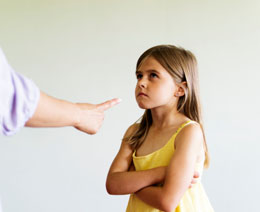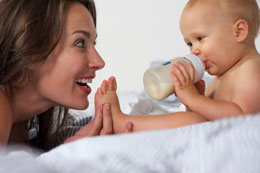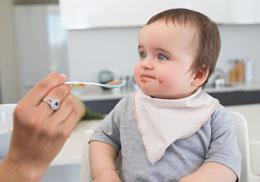Conduct disorder can also be referred as ‘disruptive behavioral disorder’. Children suffering from this disorder have trouble following the social codes of conduct. The lack of social development in children inclines them towards violating laws and behaving in an anti-social manner. This condition mostly affects children in the age group …
Feral Children
Ever since the legend of Romulus and Remus, the twins who were brought up by a she-wolf and who founded Rome; people have been intrigued and fascinated by stories of children raised by wild animals in forests. Feral children are the ones who are brought up by wild animals, away …
Behavioral Disorders in Children
Naughtiness and occasional refusal to listen to parents is something that is very commonly associated with childhood. This kind of behavior is attributed to a child’s inability to understand the repercussions of an inadequate action. However, as a child grows up, these problems do get resolved. But, not in every …
Introducing Solids to a Breastfed Baby
Being a parent is really a huge responsibility. You have to be very careful in everything related to your newborn. Though there are doctors and elder members for guidance, even small things may confuse you. The same happens with food too, as breast milk is the only food recommended for …
Healthy Meals for Toddlers
A total delight for the parents, a toddler tends to be the apple of everyone’s eye. There’s only one thing that stops them from being your dream babies – their eating habits. They enjoy some foodstuff on a given day, but the other day, they wouldn’t even give it a …
Goat’s Milk for Infants
Goats are four legged, herbivorous animals that provide loads of benefits to their owners. Goats are one of the oldest pet animals to have been domesticated for their milk, meat and in some cases even for their fur. While a goat’s meat is a popular food in various countries, its …
Food for Toddlers with Diarrhea
Similar to diarrhea in adults, toddler diarrhea is also a common health condition. You can easily identify whether your kid is suffering from this condition or not, based on the nature of stool and the frequency of bowel movement. For example, if your child is passing watery stools at least …
Healthy Recipes for Toddlers
People having a toddler know exactly what it takes to feed them with food that is healthy enough with adequate nutrients through each of the meal and snack that they eat. It is a quest to try to provide them with enough of fresh fruits and raw vegetables along with …
Benefits of Organic Baby Food
Every baby needs breast milk till it reaches a specific age of about 6 months. Most of the medical agencies of different governments and also, the World Health Organization, recommend that every baby should be breastfed till he or she becomes at least 6 months of age. It has also …
Mastitis Treatment
Mastitis is a medical condition, which causes inflammation of the breast tissues. Usually, nursing mothers are affected by this condition, which may also occur in women who do not lactate. Such inflammation can be caused by various reasons, but the most common one is infection. Infection is mostly caused by …










